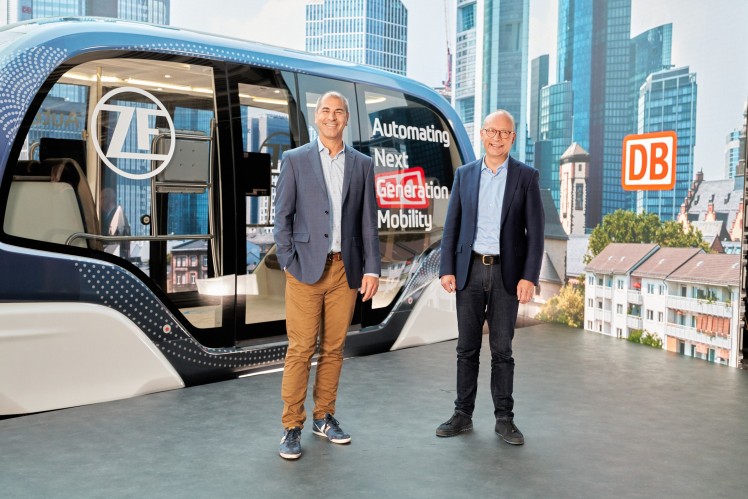
Automotive systems company ZF Group and DB Regio, the market leader in Germany’s public transport sector, are partnering to bring autonomous bus shuttles onto German roads, the companies announced Oct. 7.
DB Regio estimated that more than 30,000 highly automated or autonomous shuttle buses will be needed in Germany by 2035 to strengthen future local public transport.
“With its many years of expertise in local-specific issues of urban, municipal and inter-municipal passenger transport, DB Regio is the ideal partner for us to offer our autonomous shuttle systems to regions, cities and municipalities as a tailor-made service in each case,” Torsten Gollewski, executive vice president of autonomous mobility systems at ZF, said in a statement.
ZF subsidiary 2getthere, which develops and produces ZF shuttles, has operated highly automated and autonomous shuttle systems for more than 20 years, which have now covered more than 100 million kilometers autonomously and transported more than 14 million people with more than 99% system availability.
“Not least on the basis of these performance data and our high quality standards in the automotive mass market, DB Regio has chosen us as a strategic partner for the development and commissioning of autonomous mobility solutions,” Gollewski said in a statement. “The trust spurs us on to expand our track record.”
DB Regio implemented autonomous driving in local public transport and on public roads in Bad Birnbach for the first time in Germany in 2017. Since then, the shuttles have brought more than 60,000 passengers to their destinations in regular service with fixed schedules.
“We are already integrating autonomous vehicles into local public transport and are thus actively promoting the mobility revolution and climate protection,” Frank Klingenhöfer, member of DB Regio Bus’s management board, said in a statement. “With ZF, DB Regio Bus has a strong technology partner at its side to strengthen public transport with electric, autonomous and flexible shuttle buses. We are thus pursuing a common goal: to relieve the roads in conurbations, cities and communities and to make local public transport emission-free.”
The new partnership will focus on bringing highly automated and autonomous shuttles to regions and cities that already rely on DB Regio’s services and do not operate their own public transport, as well as new areas of application such as airports or amusement parks.
ZF will contribute its expertise with highly automated and autonomous shuttle technology, as well as its comprehensive service network, which includes project planning, routing, commissioning and maintenance of the shuttles. DB Regio will oversee shuttle operations.
The partnership will first run shuttles in two German cities, Mannheim and Friedrichshafen.
“Autonomous vehicles must be as reliable and safe as possible in order to be used in regular service. The autonomous buses and the technologies used in them by ZF are trend-setting in this respect,” Klingenhöfer said in a statement. “In the coming years, the aim is to bring shuttles onto the market that can already travel at up to 40 kilometers per hour today, and at higher speeds in intercity traffic in the future.”

